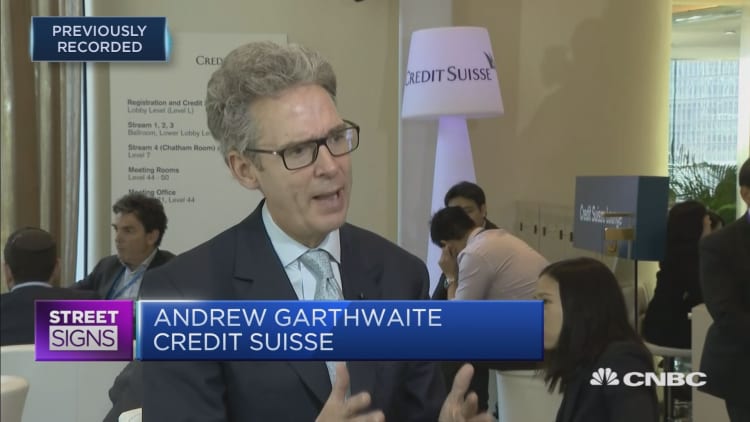
Despite concerns about trade risks, Credit Suisse's global equity head said he's "relatively relaxed" about the situation.
"In my experience, markets tend to overreact to risks which are hard to calibrate and often geopolitical or political risks are like that," said Andrew Garthwaite, the bank's head of global equity strategy.
He explained why he's not worried: For a start, the U.S. has five times more foreign direct investment in China than the Asian country has in America.
Therefore, trade frictions are counterproductive, Garthwaite told CNBC at the Credit Suisse Asian Investment Conference in Hong Kong.
History has proven that. Steel tariffs imposed by the Bush administration between 2002 to 2003 spurred European retaliation against U.S. orange products — this threatened Republican votes in farm states, he explained. The U.S. eventually lifted the tariffs at the end of 2003.
Also, the rest of the world is going ahead with trade deregulation with 11 nations signing the Comprehensive and Progressive Agreement for Trans-Pacific Partnership — a landmark trade agreement — even though President Donald Trump pulled the U.S. out of it, he noted.
Garthwaite is pinning his hopes on Trump's new economic advisor Larry Kudlow, who was appointed as director of the National Economic Council last week.
"I have to assume ultimately sensible people do sensible things ... you'd assume he is economically rational," said Garthwaite, referring to Kudlow.


